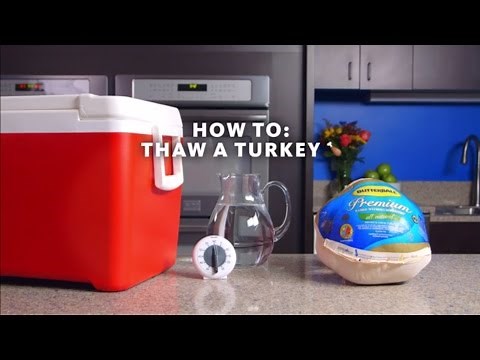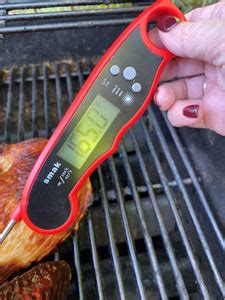
Safe Turkey Thawing: Your Thanksgiving Guide
Don't Let Your Turkey Become a Thanksgiving Hazard
Thanksgiving is just around the corner, and whether you're a first-time host or a seasoned pro, safely thawing your turkey is critical to avoiding foodborne illness. The U.S. Department of Agriculture (USDA) warns against common thawing mistakes that could turn your festive feast into a health nightmare. Here's your complete guide to thawing like a pro.
The Danger Zone: Why Counter-Thawing Is a No-Go
Never leave a frozen turkey on your kitchen counter to thaw. As the outer layers thaw, they enter the "Danger Zone" (40°F to 140°F), where harmful bacteria like Salmonella and Campylobacter multiply rapidly. A turkey can reach this unsafe temperature in just two hours on the counter. Instead, follow these USDA-approved methods:
Method 1: Refrigerator Thawing (Safest & Recommended)
This slow-and-steady method is the gold standard for food safety. Plan ahead based on your turkey's weight:
- 4–12 lbs: 1–3 days
- 12–16 lbs: 3–4 days
- 16–20 lbs: 4–5 days
- 20–24 lbs: 5–6 days
Pro Tips: Place the turkey in its original packaging on a tray to catch juices. Keep your fridge at 40°F or below. Once thawed, the turkey stays safe in the fridge for 1–2 days before cooking.
Method 2: Cold Water Thawing (For Last-Minute Cooks)
Short on time? This method works in a pinch but requires active monitoring:
- 4–12 lbs: 2–6 hours
- 12–16 lbs: 6–8 hours
- 16–20 lbs: 8–10 hours
- 20–24 lbs: 10–12 hours
Steps: Submerge the turkey (in its original packaging or a leak-proof bag) in cold water. Change the water every 30 minutes. Cook immediately after thawing—don't refrigerate or refreeze.
Method 3: Microwave Thawing (Use With Caution)
Check your turkey's packaging for microwave instructions. Uneven thawing can occur, so rotate the bird during the process. Cook immediately after thawing since partial cooking may begin during microwaving.
Cooking & Storage: The Final Safety Steps
Whether you roasted, smoked, or fried your bird:
- Use a meat thermometer to ensure the turkey reaches 165°F in the thickest part of the breast and thigh.
- Stuffing should also reach 165°F if cooked inside the bird.
- Refrigerate leftovers within two hours of cooking.
- Leftovers stay fresh in the fridge for 3–4 days or frozen for up to 6 months.
First-Time Host? You've Got This!
"For every five pounds, one day in the fridge," recommends Penn State food safety expert Mary Alice Gettings. "A 25-pound turkey needs five days to thaw safely." Remember: cold dishes stay below 40°F, hot dishes above 140°F, and never leave leftovers out for more than two hours. With these steps, your Thanksgiving table will be both delicious and safe.


Share this article
Alex Green
Lifestyle blogger covering modern living, personal growth, and cultural trends.